 by Fr. Lawrence Farley –
by Fr. Lawrence Farley –
Like it or not, homosexuality is not a private proclivity like other sins; it is a powerful movement, and one that now demands the surrender of Christian conscience.
Not so long ago, voices were raised and lawyers were sharpening their swords in America’s latest battle in the ongoing culture war. The owner of Masterpiece Cakeshop in Colorado was threatened with a fine and up to a year’s incarceration for refusing to bake a cake for a gay wedding. In New Mexico, a photographer was similarly threatened for refusing to photograph a gay wedding. In Arizona, a bill was put forward which aimed at protecting the rights of those who wanted to opt out of participating in such weddings if such participation would violate their conscience. The governor of Arizona vetoed the bill. Owners of businesses now have no legal right to decline to provide their services for gay weddings, however abhorrent the weddings may be to their consciences. [Read more…]
Orthodox Christianity
God is the Cure for Depression – St. Silouan the Athonite
 by Fr. Vasile Tudor –
by Fr. Vasile Tudor –
As Christians we must give glory to God in all things, even in pain, hoping, always hoping, in our Savior, the only One who can take us out of the brink of despair and set us for a new life in Him. In Him we put our hope, in Him we find our purpose, and on Him we set our goal.
The greatest plague of the 21st century is not AIDS, nor cancer, nor the H1N1 flu, but something that affects much more people in ways we can barely start to understand: depression. Reportedly one in ten Americans suffers from one or the other forms of this malady. The rates of anti-depressant usage in the United States are just as worrisome. A recent poll unveils that one in eight Americans is using them. Prozac, Zyprexa, Cymbalta are not strange alien names anymore, but familiar encounters in almost every American household. Even children approach the usage rates of adults. These are very high and paradoxical numbers in a country where all are free to enjoy “life, liberty and the pursuit of happiness.” [Read more…]
Holy Saturday – The Orthodox Celebration of Great and Holy Saturday
![]() by Fr. Alexander Schmemann –
by Fr. Alexander Schmemann –
Great and Holy Saturday is the day on which Christ reposed in the tomb. The Church calls this day the Blessed Sabbath. The great Moses mystically foreshadowed this day when he said: God blessed the seventh day. This is the blessed Sabbath. This is the day of rest, on which the only-begotten Son of God rested from all His works… (Vesperal Liturgy of Holy Saturday).
By using this title the Church links Holy Saturday with the creative act of God. In the initial account of creation as found in the Book of Genesis, God made man in His own image and likeness. To be truly himself, man was to live in constant communion with the source and dynamic power of that image: God. Man fell from God. Now Christ, the Son of God through whom all things were created, has come to restore man to communion with God. He thereby completes creation. All things are again as they should be. His mission is consummated. On the Blessed Sabbath He rests from all His works. [Read more…]
Holy Week – Pastoral Advice from an Orthodox Priest
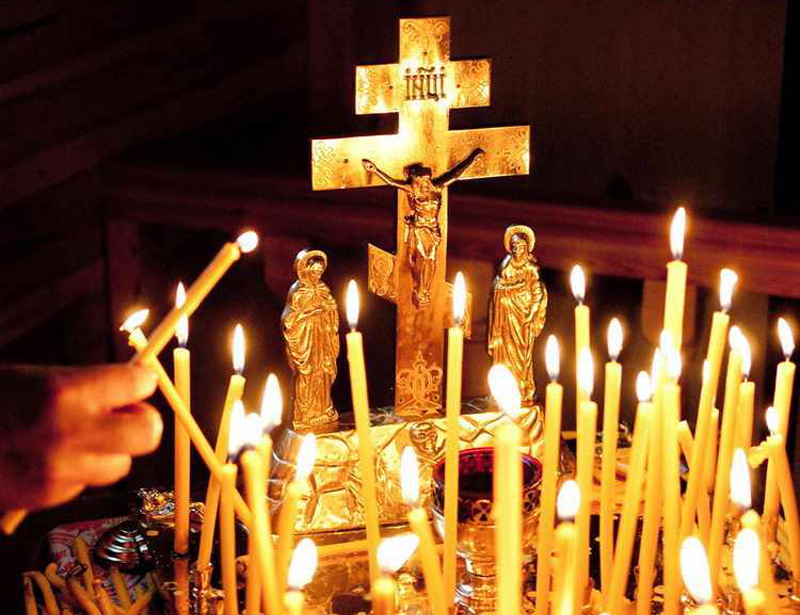 by Fr. John Moses –
by Fr. John Moses –
The days of Holy Week are designed to represent to us the last week of Christ’s earthly life before His Crucifixion. It is a terrible and wonderful journey: terrible because the Lord will have to endure so much; and wonderful because if we take this journey with Him, it can be a life-changing experience. If we do a bit of study and reading before we go to church, each service will be even more powerful and meaningful.
Sophia Moshura: If we feel that we have not spent Great Lent properly, how can we still use the remaining days of Holy Week to prepare worthily for Pascha?
Fr. John Moses: The days of Holy Week are designed to represent to us the last week of Christ’s earthly life before His Crucifixion. It is a terrible and wonderful journey: terrible because the Lord will have to endure so much; and wonderful because if we take this journey with Him, it can be a life-changing experience. If we do a bit of study and reading before we go to church, each service will be even more powerful and meaningful. [Read more…]
Priest vs. Priest on Homosexual Orientation
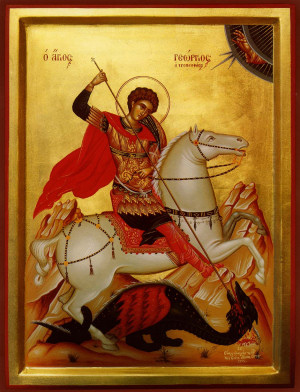 by Editors –
by Editors –
In an online exchange on the popular Monomakhos Blog, the topic of discussion focused on the views on homosexuality expressed by Fr. Alexis Vinogradov a priest in the OCA, rector of St. Gregory the Theologian Church in Wappingers Falls, NY.
Fr. Hans Jacobse, a priest in the AOCA, rector of St. Peter Orthodox Mission in Naples, FL, challenged the presumptive opinions of Fr. Alexis and presented the truth from a proper Orthodox Christian understanding.
Fr. Alexis Vinogradov’s views were originally published in 2011 in an article titled New beginnings in community Gender issues and the Church on ocanews.org. Here’s the relevant excerpt that Fr. Hans responded to in the comments section of Monomakhos Blog:
“Homosexual persons did not decide to become homosexual. It was not the fruit of their supposed depravity or sin. That much we know today. There can only be a continuing conversation if we can cross that hurdle of blatant intransigence by those who refuse to acknowledge this fact. But homosexual persons, just as much as heterosexual ones, need to feel the warmth and love and nurture of other persons. God created them for that love, that love is the substance of our humanity; it is what constitutes all of us in bearing his image within us.” ~ Fr. Alexis Vinogradov
Liturgy of the Presanctified Gifts in the Orthodox Church
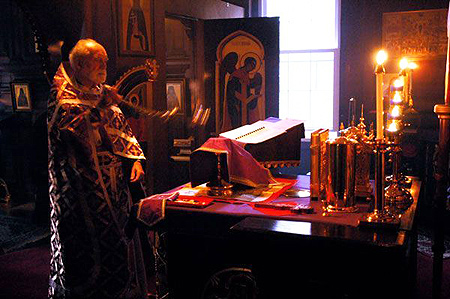 The joyousness which accompanies the performance of the Divine Liturgies of St. Basil the Great and St. John Chrysostom was regarded by the early Church as not suitable for the penitential season of the Great Fast. For this reason, the Synod in Laodicea (363 AD) forbade the performance of the Divine Liturgies during the Great Lent. except on Saturday, Sunday, the Feast of the Annunciation, and Holy Thursday.
The joyousness which accompanies the performance of the Divine Liturgies of St. Basil the Great and St. John Chrysostom was regarded by the early Church as not suitable for the penitential season of the Great Fast. For this reason, the Synod in Laodicea (363 AD) forbade the performance of the Divine Liturgies during the Great Lent. except on Saturday, Sunday, the Feast of the Annunciation, and Holy Thursday.
The Christians of that time were in the habit of receiving Holy Communion almost daily and now were deprived of the strengths derived from Holy Communion for about a week. The greatly saddened them.
The Church, desiring Her children to continue their pious habit of daily receiving the Holy Communion, permitted its reception but from Holy Gifts that had been consecrated in a preceding Liturgy. Thus the Liturgy of Presanctified Gifts was formed, and was celebrated on evenings from Monday through Friday during Great Lent; there is no consecration of the Sacred Elements at the Liturgy of the Presanctified Gifts, but those who desire to communicate receive the Holy Gifts which have been consecrated at the previous Divine Liturgy. [Read more…]
Abortion is a Categorical Evil
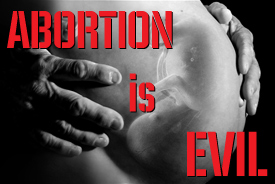 by George Michalopulos –
by George Michalopulos –
the mutilation of an innocent baby in its mother’s womb is an unarguable evil. Global warming, income inequality, and even capital punishment are arguable.
We don’t know whether global warming is an actual fact, a hoax, or something in-between. “Income inequality”? Why is the fact that Tom Brady makes more money throwing a football than a hamburger-flipper at McDonald’s unfair? It may be but it may not be. In other words, it’s arguable.
Capital punishment? Unfortunate, but a savage murderer is not on the same moral plane as an innocent child. Again, it’s arguable.
Abortion is a categorical evil for which there is no moral amelioration. [Read more…]
Losing our Religion: “Retaining” Young People in the Orthodox Church
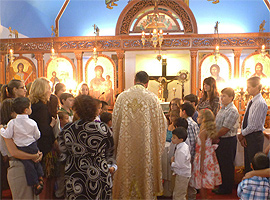 by Seraphim Danckaert –
by Seraphim Danckaert –
A person is most likely to retain Christian faith throughout adult life if he or she had three (3) meaningful and healthy relationships in their early to mid teenage years: one with faithful Christian parents, one with a faithful Christian mentor outside of the family, and one with God Himself.
Seraphim Danckaert at Orthodoxy and Heterodoxy critically evaluated a recent article that claims that “90% of Americans with Greek roots are no longer in communion with the Orthodox Church.” The excerpts below are from Seraphim’s insightful analysis on why the youth leave the Orthodox Church and what must be done to retain them.
…
The article assumes (but does not show) that the reason for this mass apostasy is two-fold: (1) the inevitable rise of interfaith marriages in America’s multicultural, religiously pluralistic, and secular society; and (2) the Greek Orthodox Church’s failure to respond to the “critical and immediate need for a broad religious outreach; to make room for interfaith families,” and thereby follow St. Paul’s example in extending “Christianity’s outreach to all nations.” [Read more…]
Poverty in Spirit More Important Than Material Poverty
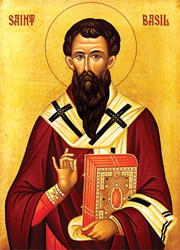 by St. Basil the Great –
by St. Basil the Great –
Poverty is not always praiseworthy, but only when it represents a free choice according to the Gospel commandment.
Many are poor in terms of possessions and very miserly in spirit, and those people will not be saved through their poverty but damned by their attitude of mind.
Not every poor person therefore is worthy of praise, but only those who of their own choice put the commandment of the Lord before all the treasures of the world.
Those people the Lord says are blessed when he proclaims “blessed are the poor in spirit.” He does not say the poor in possessions, but those who have freely chosen poverty in spirit.
What is involuntary cannot merit blessedness. Every virtue, and poverty in spirit more than any other, must be a free choice. [Read more…]
Freedom from a Godly Perspective
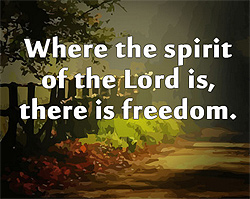 by Fr. Patrick Reardon –
by Fr. Patrick Reardon –
With respect to the life in Christ it is important to keep in mind two aspects of freedom:
First, a correct concept of freedom disinclines us to reduce it to the mere ability to make choices. Thus reduced, indeed, freedom looks more like a potential than a reality. Freedom is counted, after all, as a great human blessing.
But how can the mere capacity for choice be —without reservation— a blessing? Is that man to be called blessed who chooses to fling himself into a fire? Is freedom truly a blessing if someone deliberately enslaves himself? If freedom is to be counted a blessing, choice must in some measure be qualified by its object. [Read more…]
